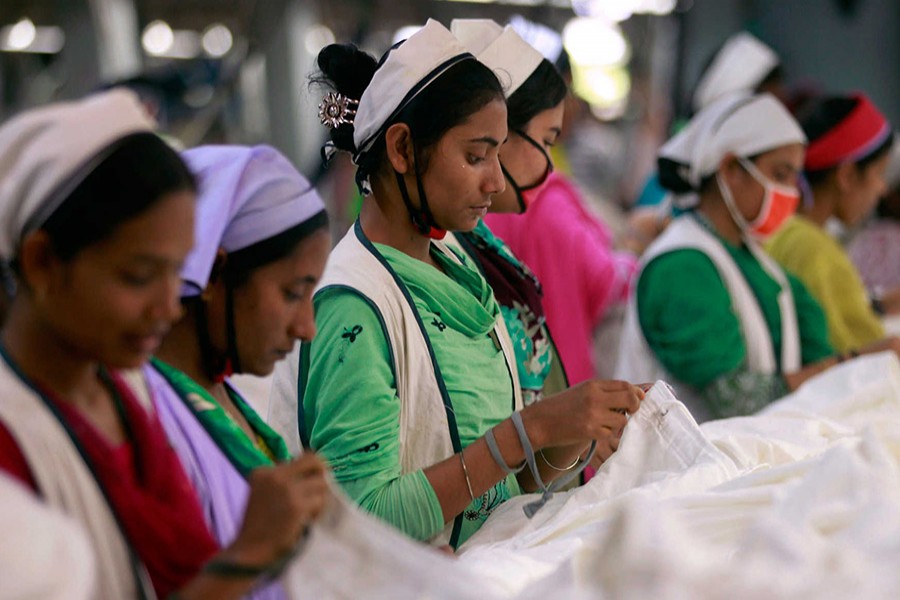Women workers in the country' readymade garment (RMG) sector are deprived of their lawful rights and also face various forms of harassment in the workplace, according to a study report released on Monday.
The study titled 'State of Rights Implementation for Women Ready Made Garment Workers' was conducted by Karmojibi Nari and Care Bangladesh with funding from the Austrian Development Cooperation.
Some 84.7 per cent of the respondents said they faced verbal abuse, including scolding, while 71.3 per cent suffered mental harassment.
Mental harassment ranges from simple scolding to the threat of expulsion from job. Sudden increase of workload/target and not allowing them to leave the factory until they reach the target are also considered by workers as mental harassment, the report said.
Workers also complained that in case of any fault on their part, they are kept standing in front of many others, which create mental stress on them.
The study report was launched at a programme in a city hotel, with Hameeda Hossain, convener of Workers Safety Forum, as the chief guest.
The study was carried out among 150 garment workers in Gazipur and Dhaka.
Workers complained that the factory authorities often rebuke them and use abusive words.
"Majority of the workers have brought the allegation that they are harassed mostly by the supervisors -- 52 per cent faced physical harassment and 70 per cent verbal abuse. The line chief, floor in-charge and production managers also harass them," said the report.
The study also showed that 12.7 per cent of workers faced sexual harassment at their workplaces.
It revealed that though the rate of issuance of attendance card to garment workers by their employers is very high -- 98.7 per cent, the rate of providing service book and issuing appointment letter is comparatively low.
Some 51.3 per cent of respondents did not get service book, 31.3 per cent have no appointment letter, 32 per cent do not get pay slip from employers and 24.7 per cent don't have any identity card, the report said.
Presenting the study findings at the programme, Prof Jakir Hossain of Rajshahi University said the study was designed to know about the implementation status of women garment workers' rights at their workplaces.
About 15 per cent of respondents said their factories do not allow maternity leave, while 7.3 per cent even do not know whether workers of their factories are given maternity leave.
Some 78 per cent of the respondents claimed that maternity leave is given to workers, but the employers do not follow the legal provisions fully, the report said.
Khondaker Golam Moazzem of the Centre for Policy Dialogue suggested carrying out follow-up studies to know about the improvements and identify the areas that need to be improved further.
Speaking at the programme, Nazma Akter, president of Sammilito Garment Sramik Federation, said the reports should be shared with all stakeholders, including factory owners, government and buyers, and they should be made responsible for ensuring workers' rights.
Labour leaders present at the programme stressed the need to enforce the labour law, put in place a strong monitoring system and raise awareness among the workers about their rights.
They also demanded Tk 16,000 in minimum monthly wage.
Sultan Uddin Ahmed, executive director of Bangladesh Institute of Labour Studies, called on economists, experts and the civil society members to fix an amount a worker needs to lead a decent life.


